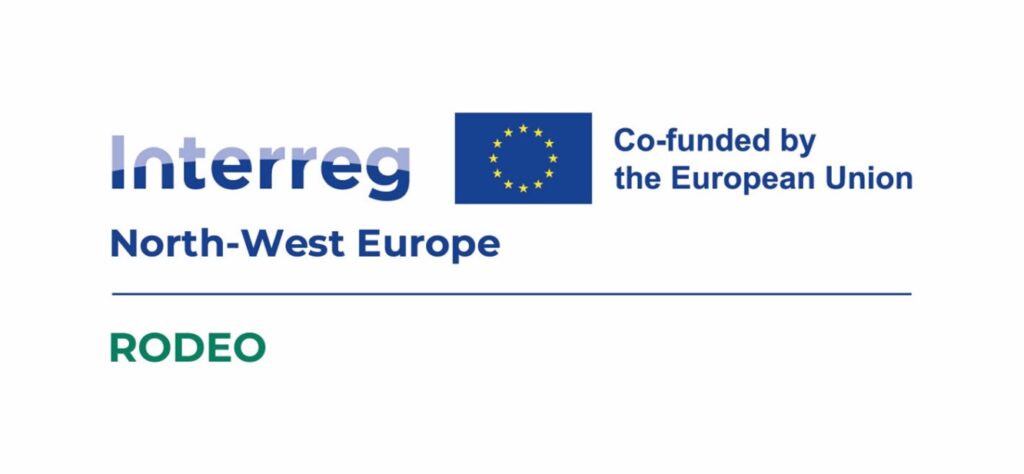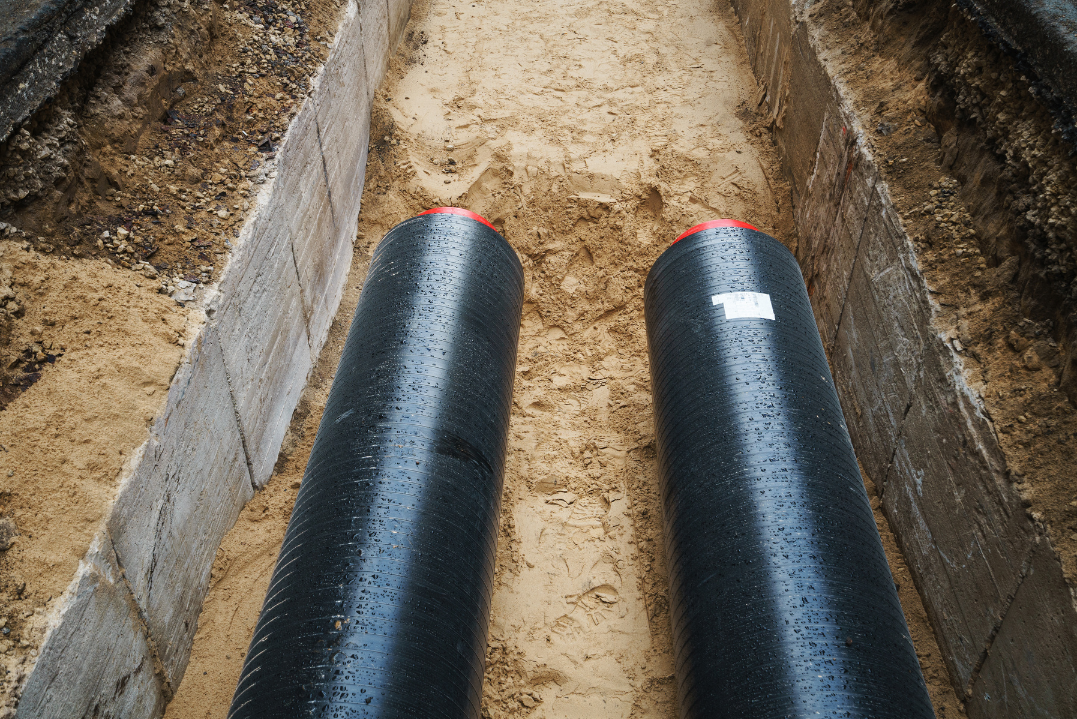Rolling Out District Heating and Cooling Extensively to home Owners
District heating and cooling (DHC) is an important tool for the energy transition of urban areas and features prominently in many local climate plans. However, in most cities in Northwest Europe, these networks still need to be developed. The current traditional business models hinder further development and scaling up. Therefore, the RODEO project focuses on developing a participatory business model.
A DHC-system (District Heating and Cooling system), is a network that provides heating and cooling to multiple buildings from a central source, like from waste incineration, geothermal energy, biomass or industrial waste heat. By centrally producing and distributing, a DHC-system can be more effective than individual systems. It can also help to reduce CO2 emissions by using renewable energy sources and waste heat.
The biggest challenges for city heating and cooling are economic and social, rather than technological challenges. Natural gas is integrated and does not require high investments and is therefore preferable. This is why DHC-systems often begin as small-scale systems with only a handful of major gas consumers. In these situations, there are limited risks, but it also hinders growth. Furthermore, social participation is often absent, while residents are directly affected by new heating solutions.
RODEO therefore introduces a more participative business model which balances out the costs, benefits and risks of the development of DHCs. This means we can deploy heating networks on a large scale and reach individual homes. The interaction between all stakeholders (local authorities, grid operators, heat suppliers, and heat consumers) forms the core of this model.
We are researching participatory approaches and examining how different parties can collaborate to find solutions for the currently stagnant, expensive, and sometimes polluting energy supply. Therefore, an important question is how small end-users (households) can be included in heating plans.
The project focuses on neighborhoods with a high number of vulnerable households, such as the city center of Ostend and the De Lariks neighborhood in Assen. More affordable and sustainable heating could help these households reduce their energy costs.
The RODEO project will co-create and validate the business model in four cities, each with its own DHC system: Dunkirk, Ostend, Assen, and Dublin. While each network is in a different stage of development, they all still mainly rely on natural gas. The exchange of knowledge between these four cities, supported by experts from Exceedence, Hanze, and Endeavour, will significantly accelerate learning and development for all parties involved. To maximize impact, the lessons learned will be integrated into a training program aimed at local authorities and DHC managers.
RODEO is an Interreg north-west Europe project including 10 partners (see below). The goals of this project are in accordance with the program priority ‘Smart and fair energy transition’ of Interreg north-west Europe. Specifically, with ‘Advancement of energy efficiency and reduction of greenhouse gasses.’
For more information:


Duration: January 2025 – December 2028
Total budget of the project: €3,6 million
Budget ENTRANCE: €800.000
Location: The Netherlands, Belgium, France, Ireland
Partners: City of Ostend, Autonomous Agency Ostend, Municipality of Assen, Great Dunkirk, Public Housing Office of the Nord department – Partenord Habitat, City of Dublin Energy Management Agency, South Dublin County Council, Exceedence Ltd., Hanze University of Applied Sciences, Endeavour
Themes:
System integration
Local and regional energy trategies
Involved professorships:
Energy transition
Communication, behaviour & sustainable society
Legal and economic issues within the energy transition
The future of the transition to sustainable energy.
Developing an innovation roadmap for small-scale wind energy, commissioned by TKI Urban Energy.
Which policy instruments can European cities utilize to promote the implementation of Positive Energy Districts?
How can the Dutch energy market be organized, in order that it joins the changing energy system? This is a central question at the project MODES (Market Organization of the Dutch Energy System).
